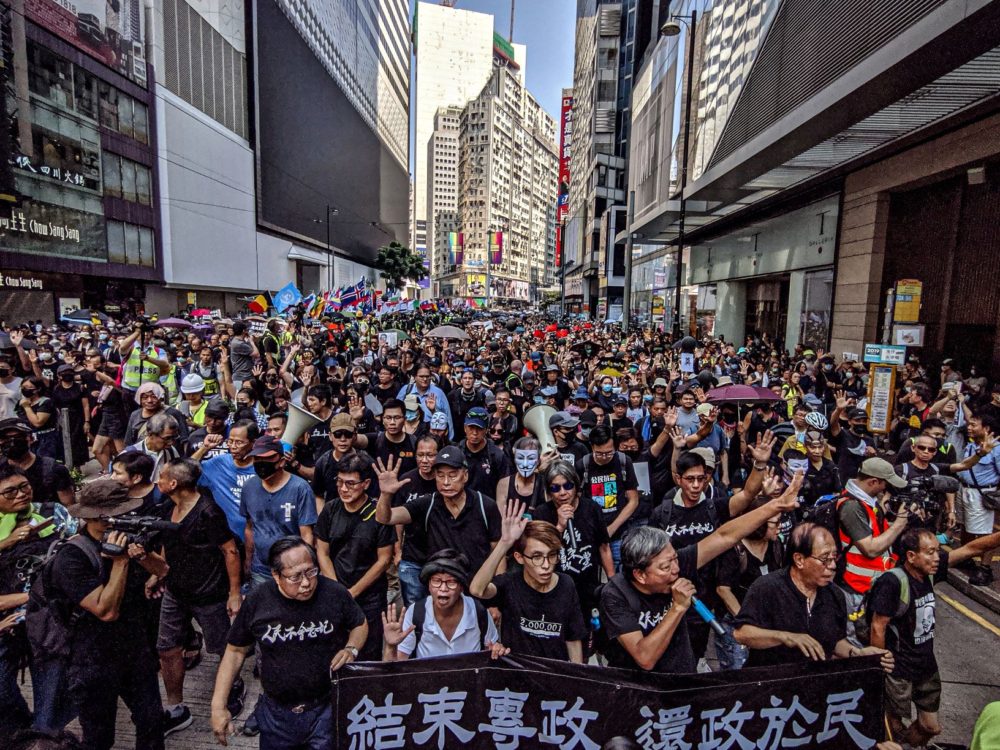
By Justin Hsieh, News Editor
Throughout 2019, mass protests have touched nearly every corner of the globe. Protests reached new heights in October, where major demonstrations erupted in over 15 countries across four continents. Here is what you need to know about every country’s protests, summarized in two sentences each.
LATIN AMERICA
In Bolivia, thousands have taken to the streets to protest alleged election fraud on the part of incumbent Evo Morales, who won a close election over challenger Carlos Mesa. Protestors and international groups have called for a second round of voting, which Morales has refused, and the Organization of American States is conducting an audit of the election.
In Chile, student-led protests over an increase in subway fares turned into nationwide demonstrations against the country’s severe inequality. Protestors are now calling for President Sebastian Pinera’s resignation and a new constitution.
In Ecuador, adoption of a new economic austerity plan with the International Monetary Fund led to a spike in fuel prices, which triggered protests so extreme that President Lenín Moreno declared a national emergency and moved the government out of the capital. The protests ended after Moreno agreed to talks with the protesters and struck a deal to cancel the austerity package.
In Haiti, an economic crisis including severe inflation and fuel shortages led anti-government protesters to barricade streets and attempt to march on President Jovenel Moïse’s home before being turned back by police. The protests have paralyzed the nation, and over 30 people have been killed in demonstrations.
In Peru, President Martín Vizcarra’s dissolution of Congress on charges of obstructionism and Congress’ subsequent suspension of the president led to protests around the country in support of the president. Later in the month, the government also authorized the armed forces to intervene in ending anti-mining protests.
AFRICA
In Algeria, protests by thousands against government corruption, state repression and the ruling elite have led long-standing President Abdelaziz Bouteflika to resign. While government leaders hope that December’s election will put an end to the protests, demonstrators do not believe that an election will be fair or free and plan to continue marching.
In Ethiopia, protesters rallied against president Abiy Ahmed after a prominent journalist accused the government of removing security from his home in the capital. Although police denied these claims, demonstrations continued and have since left 86 dead.
In Zimbabwe, thousands marched in government-organized protests against economic sanctions imposed by the United States and the European Union on a dozen government officials. While proponents of the demonstrations blamed the sanctions for ruining the Zimbabwean economy, the US and EU as well as opposition groups in Zimbabwe have dismissed the claims as attempts to deflect anger about the country’s economic crisis.
EUROPE
In Britain, hundreds of thousands marched on London to demand a confirmatory referendum on the country’s impending and controversial Brexit deal to leave the European Union. The people first voted for Brexit in 2016, but negotiations between the European Union, the two prime ministers who have served during the Brexit crisis, and the British Parliament have repeatedly stalled and left the country without an agreed-upon deal for leaving.
France has seen protests from a variety of groups in the past month. Police marched to demand better working conditions, recognition and support; firefighters were tear gassed when some tried to climb barriers around the parliamentary building as they protested for better pay, pensions and respect; and farmers drove tractors to government offices across the country to protest measures that are hurting their revenues.
In the Netherlands, thousands of farmers caused traffic jams by driving their tractors on the highway to protest what they claim are government attempts to blame them for nitrogen pollution. Later in the month, the highways were again clogged when construction workers drove trucks, diggers and cranes in protest of pollution reduction proposals that could affect their jobs.
In Spain, the supreme court’s decision to jail nine separatist leaders of a 2017 Catalan secession movement triggered mass protests across Catalonia, an autonomous region of Spain that has been calling for independence for years. Prime Minister Pedro Sanchez refused talks with Catalonia President Quim Torra after protests turned violent, and protesters have continued to clash with police in the streets.
MIDDLE EAST
In Iraq, violent anti-government protests have killed over 200 people as they have cried out against corruption, mass unemployment, failing public services and perceived government subservience to the United States and Iran. Earlier this week, several people were shot dead when protesters attacked the Iranian consulate in Karbala.
In Lebanon, a quickly rescinded tax on WhatsApp has since led thousands to rally against corruption, economic stagnation, and failure of public services and in calls for a complete teardown of the existing political system.While Prime Minister Saad Hariri resigned to meet protesters’ demands, the powerful group Hezbollah has held its ground and broken up protests.
ASIA
In Hong Kong, protests that started in June over a bill that would allow extraditions to mainland China quickly evolved into broader demonstrations against China’s attempts to consolidate its control over Hong Kong, which has long enjoyed a relatively high degree of autonomy and democracy compared to the mainland. As protesters continue to march in the streets and clash with police, they have also sparked significant controversy in the United States.
In Pakistan, opposition leaders have organized thousands in sit-in demonstrations against Prime Minister Imran Khan. While protesters have called for Khan to resign over poor economic conditions and alleged election fraud, Khan has refused.





